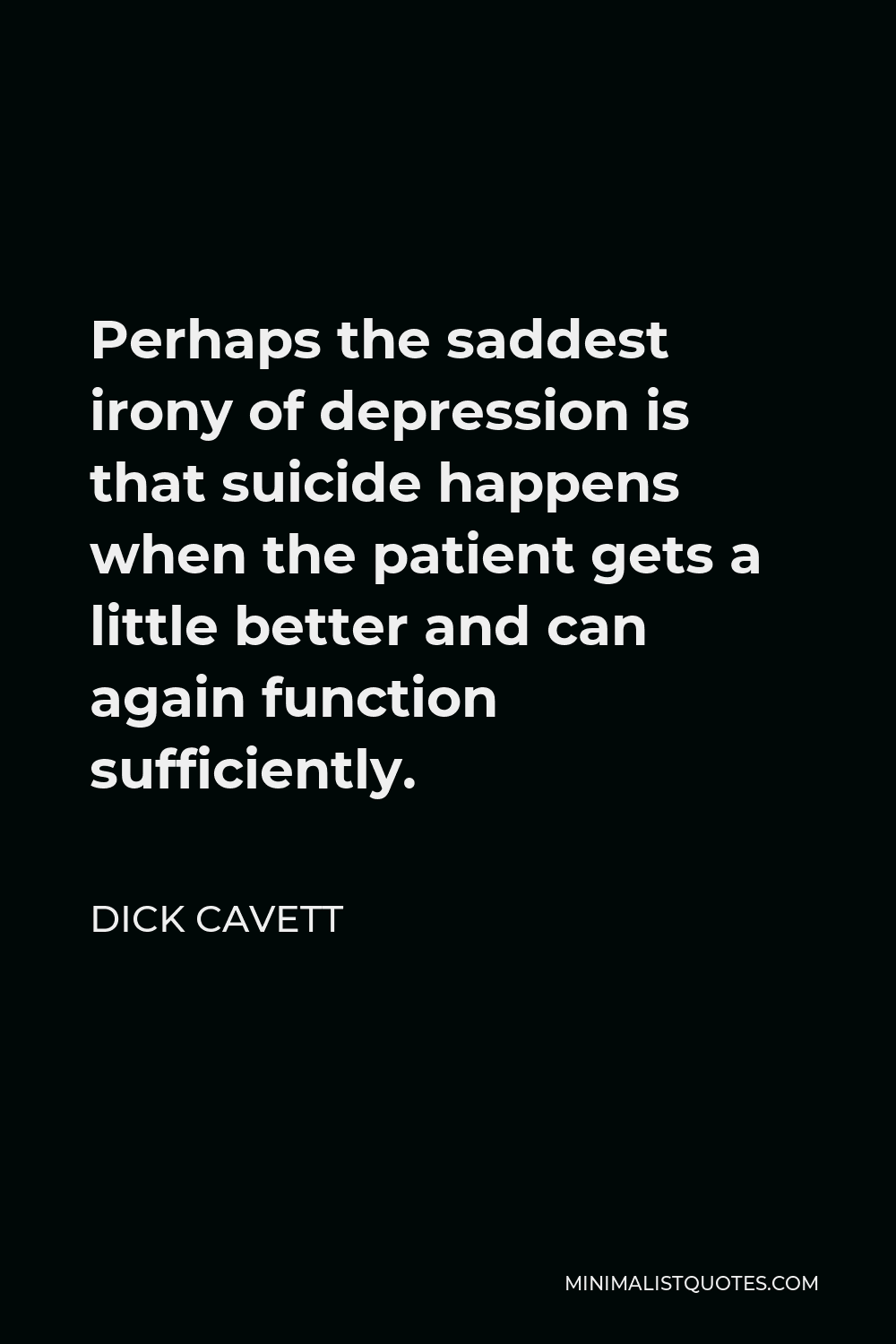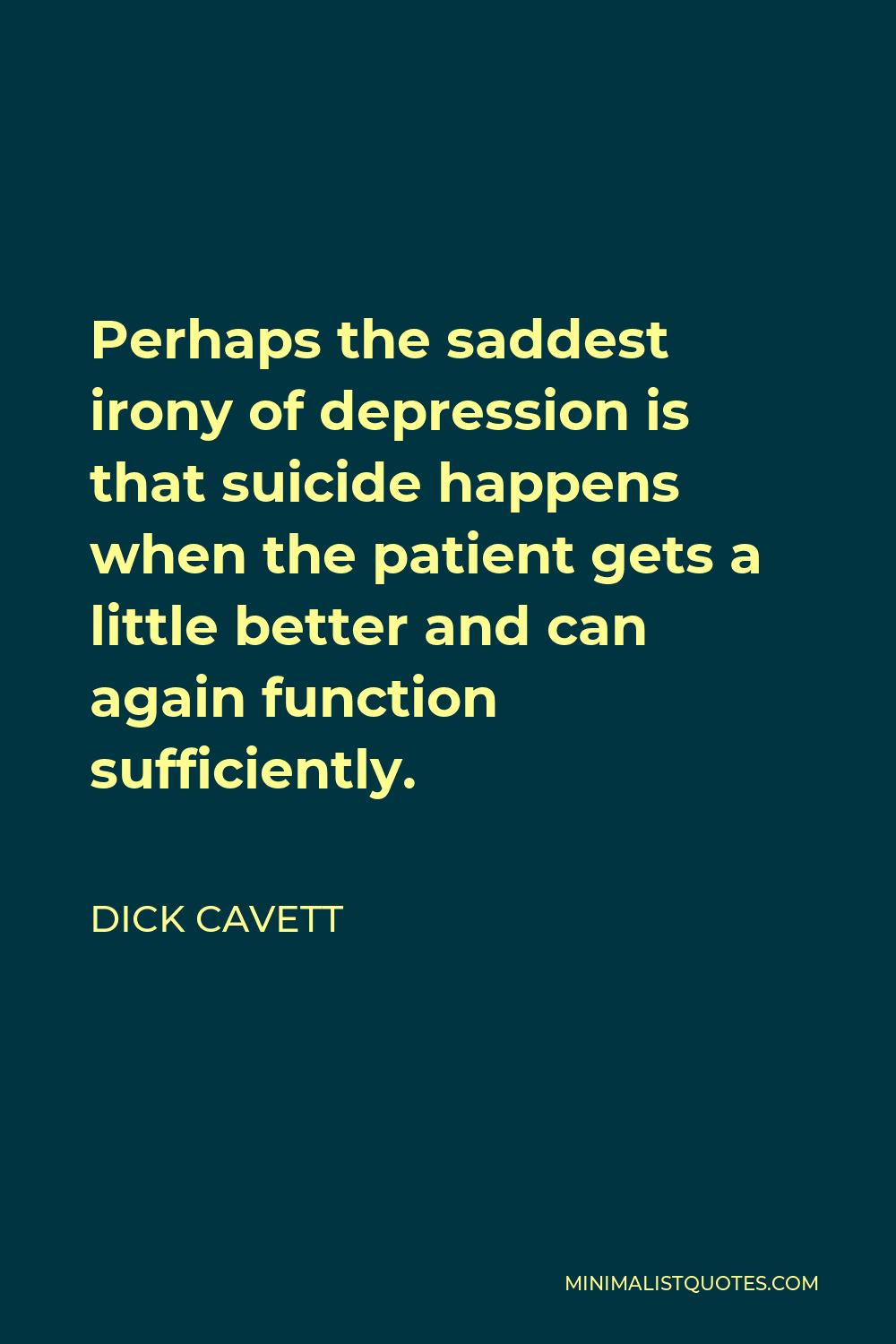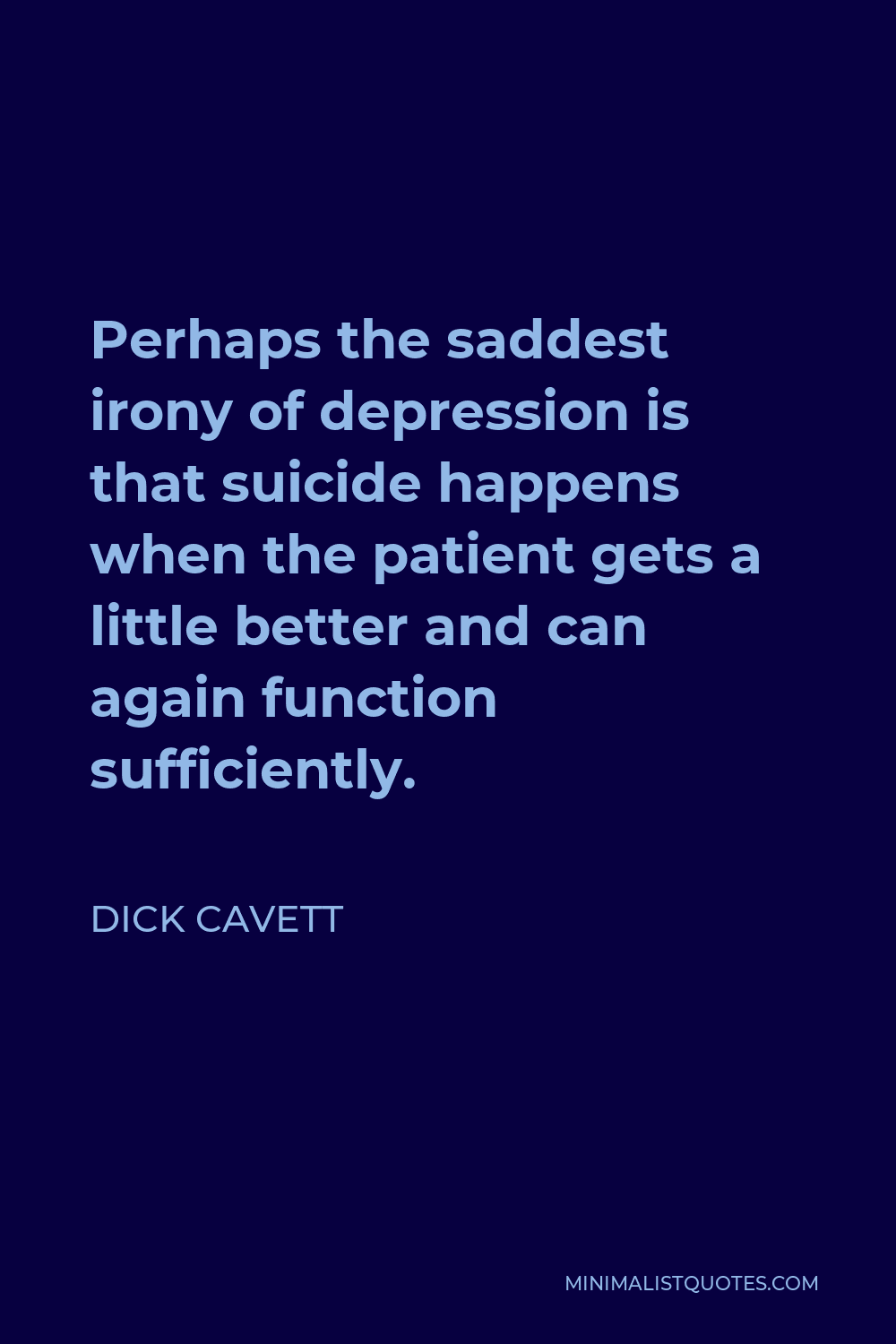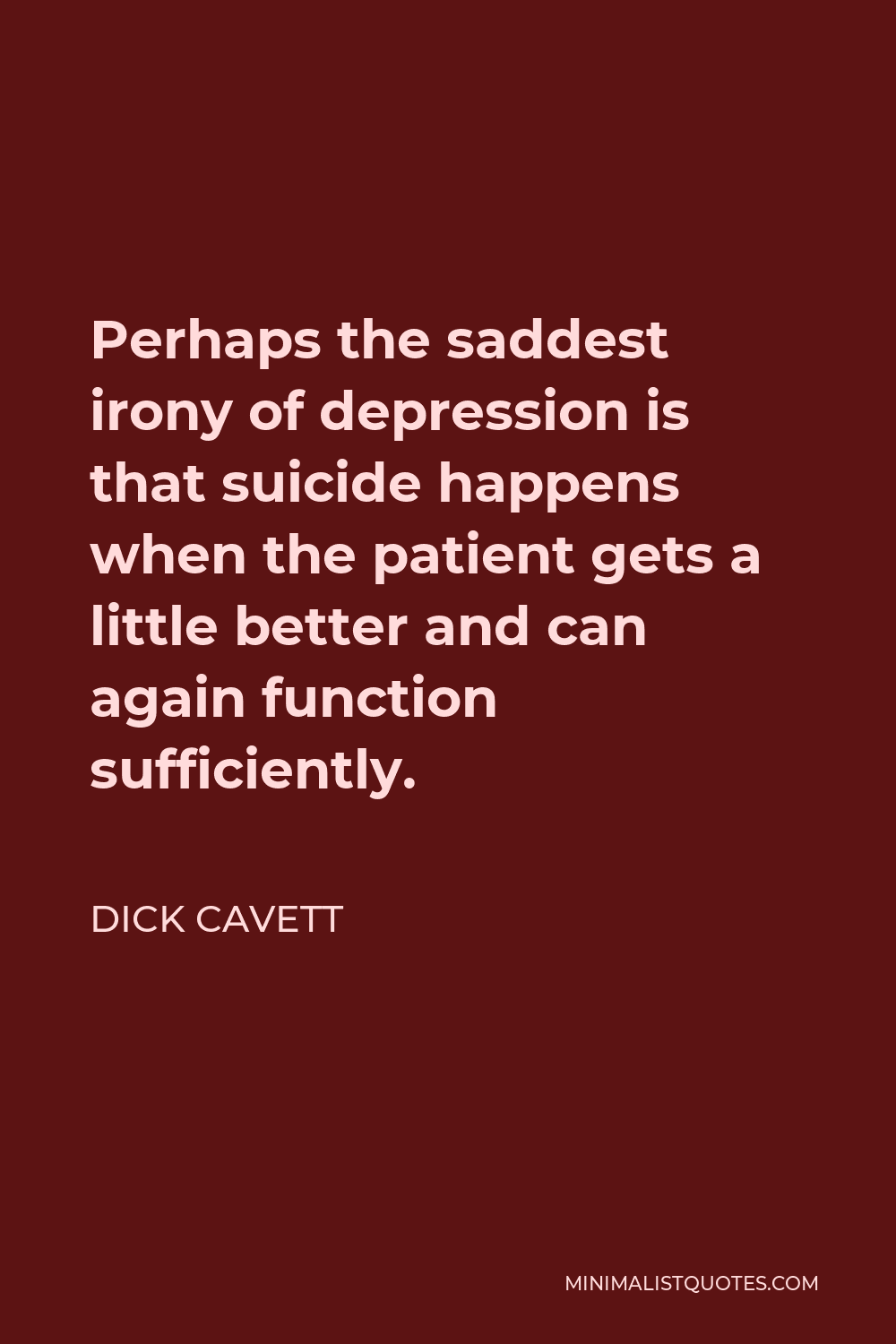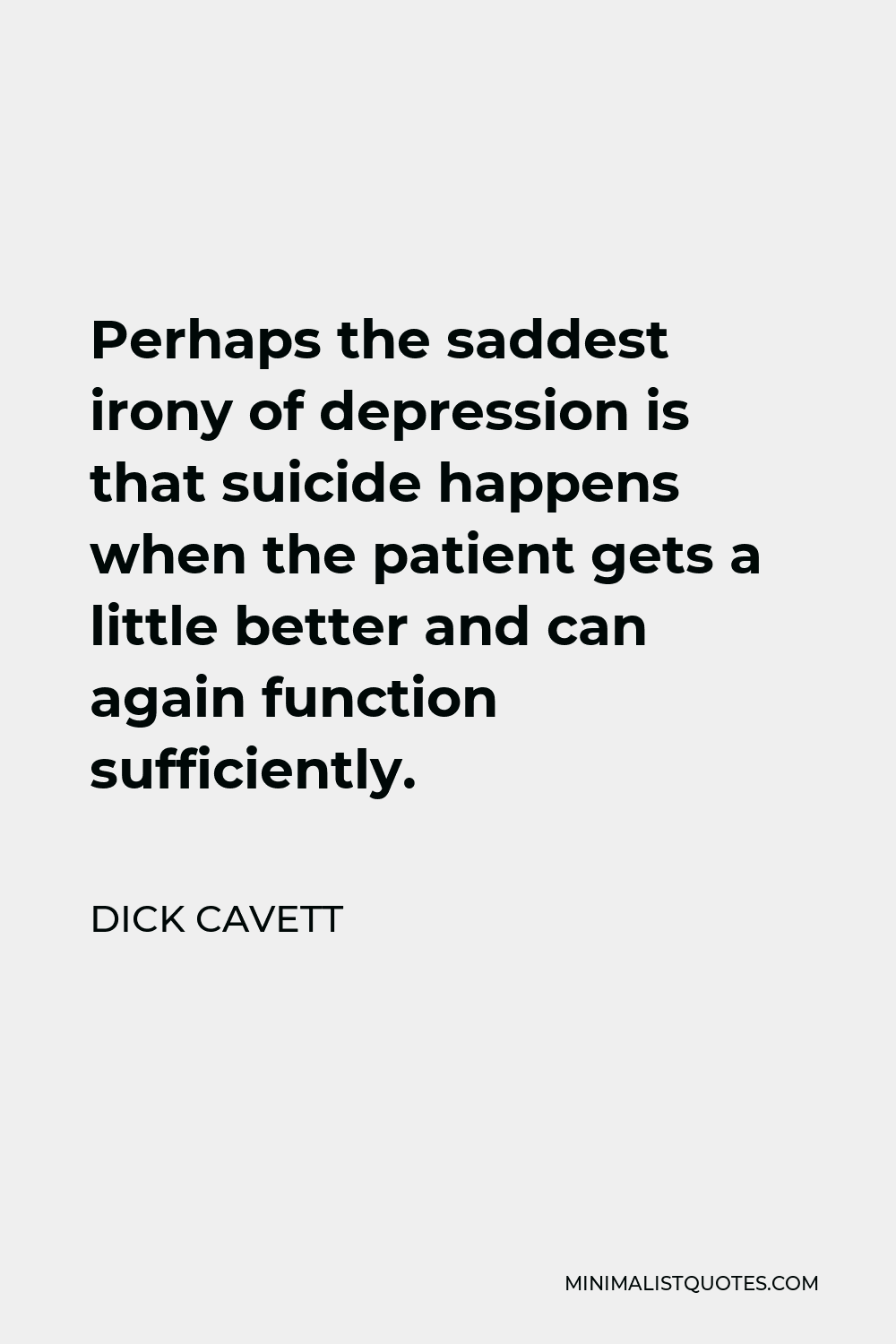In relative youth, we assume we’ll remember everything. Someone should urge the young to think otherwise.
DICK CAVETTPerhaps the saddest irony of depression is that suicide happens when the patient gets a little better and can again function sufficiently.
More Dick Cavett Quotes
-





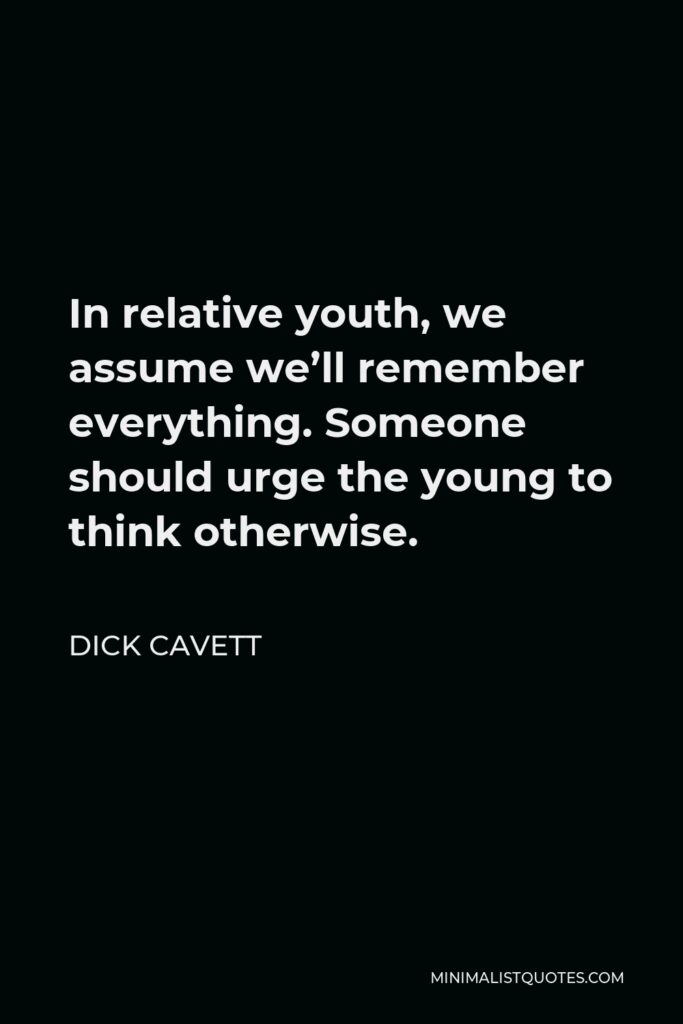

-





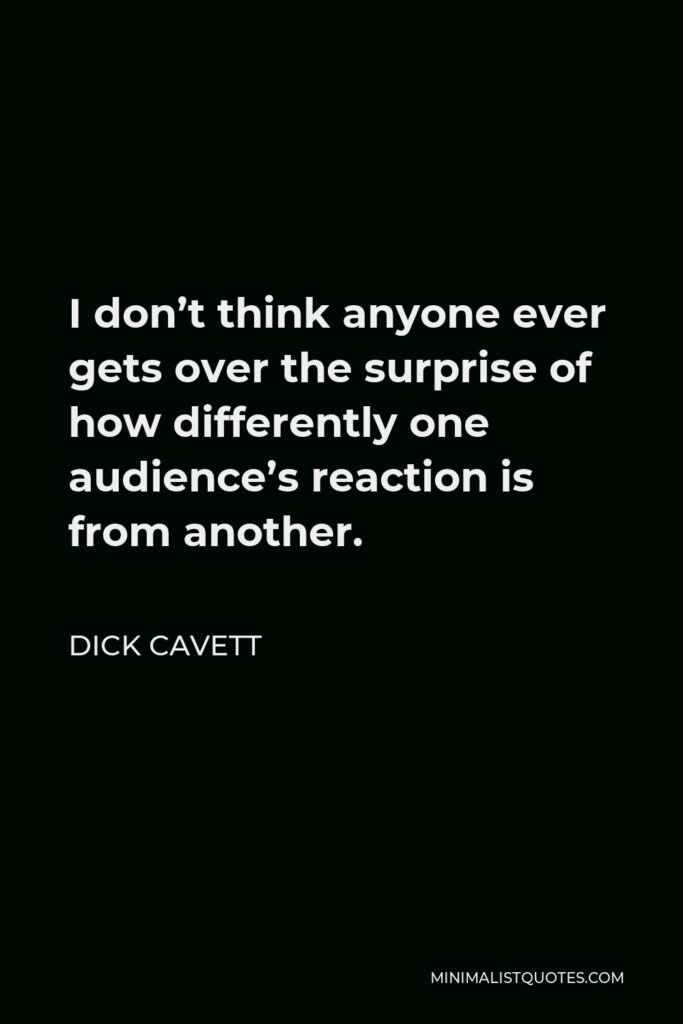

I don’t think anyone ever gets over the surprise of how differently one audience’s reaction is from another.
DICK CAVETT -





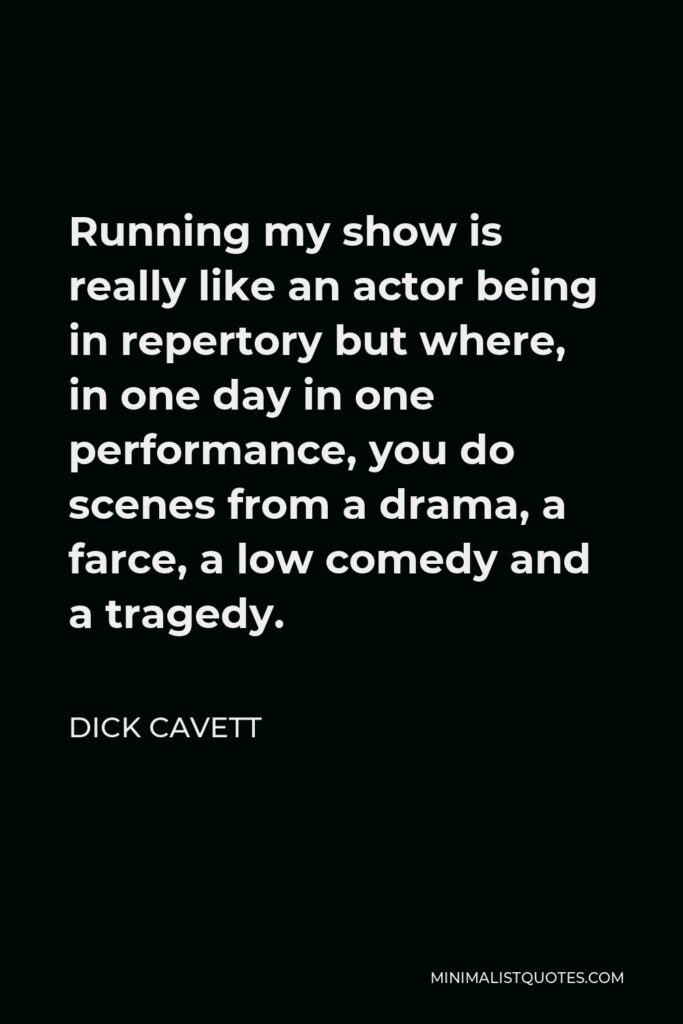

Running my show is really like an actor being in repertory but where, in one day in one performance, you do scenes from a drama, a farce, a low comedy and a tragedy.
DICK CAVETT -





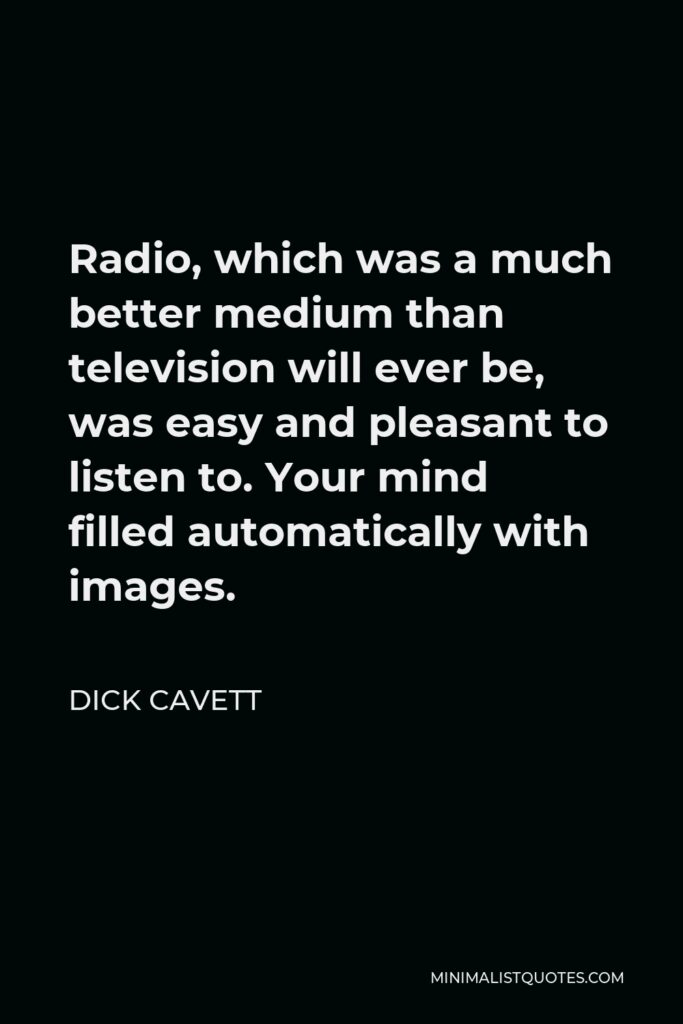

Radio, which was a much better medium than television will ever be, was easy and pleasant to listen to. Your mind filled automatically with images.
DICK CAVETT -





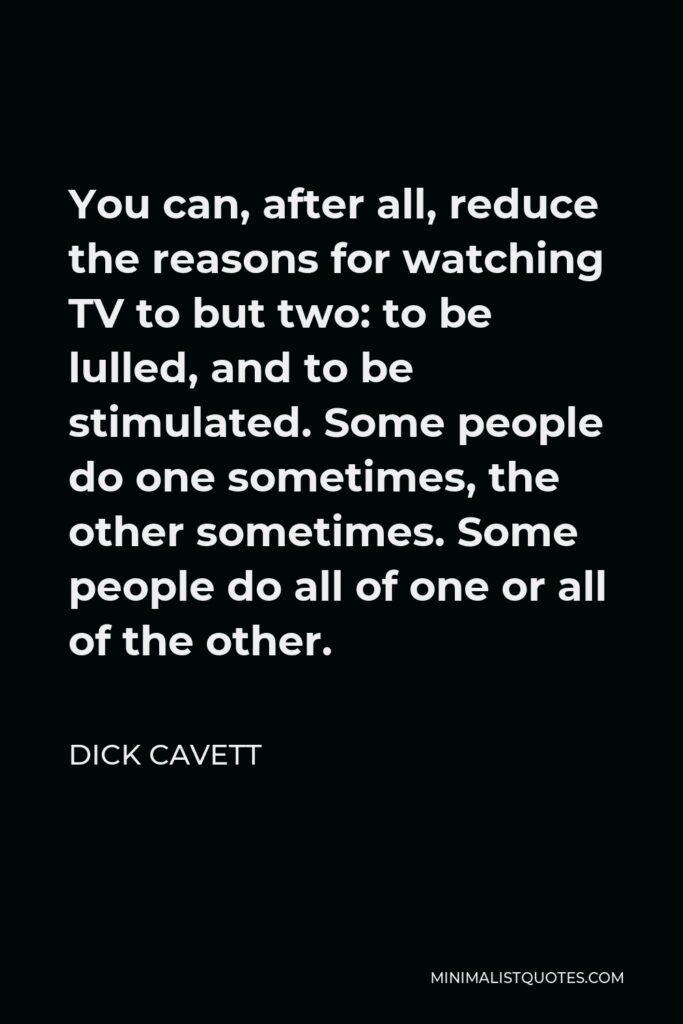

You can, after all, reduce the reasons for watching TV to but two: to be lulled, and to be stimulated. Some people do one sometimes, the other sometimes. Some people do all of one or all of the other.
DICK CAVETT -





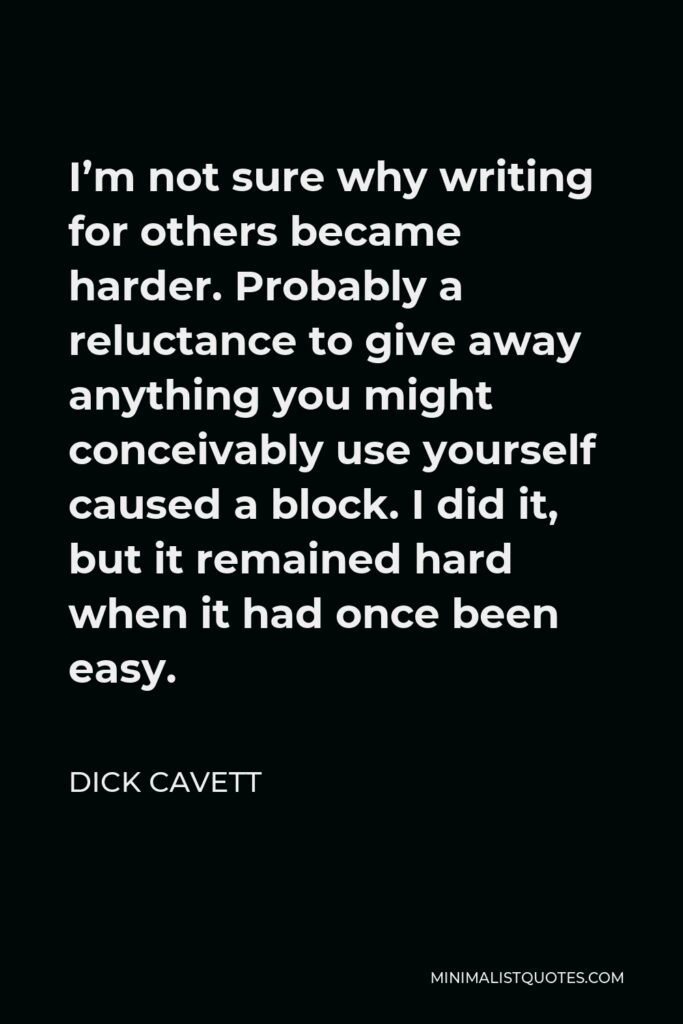

I’m not sure why writing for others became harder. Probably a reluctance to give away anything you might conceivably use yourself caused a block. I did it, but it remained hard when it had once been easy.
DICK CAVETT -





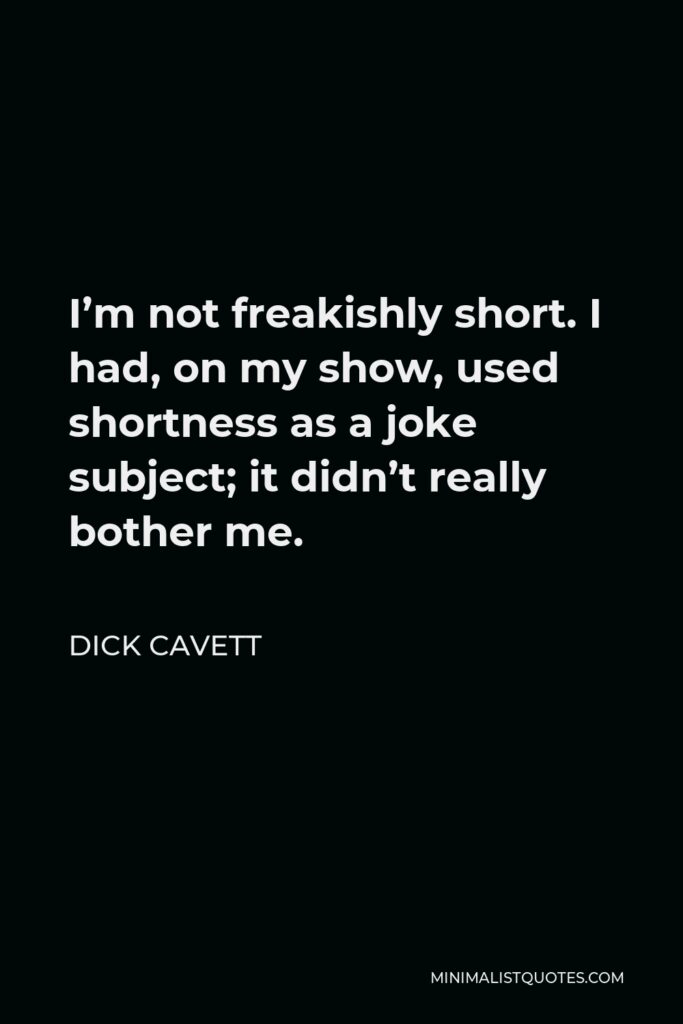

I’m not freakishly short. I had, on my show, used shortness as a joke subject; it didn’t really bother me.
DICK CAVETT -





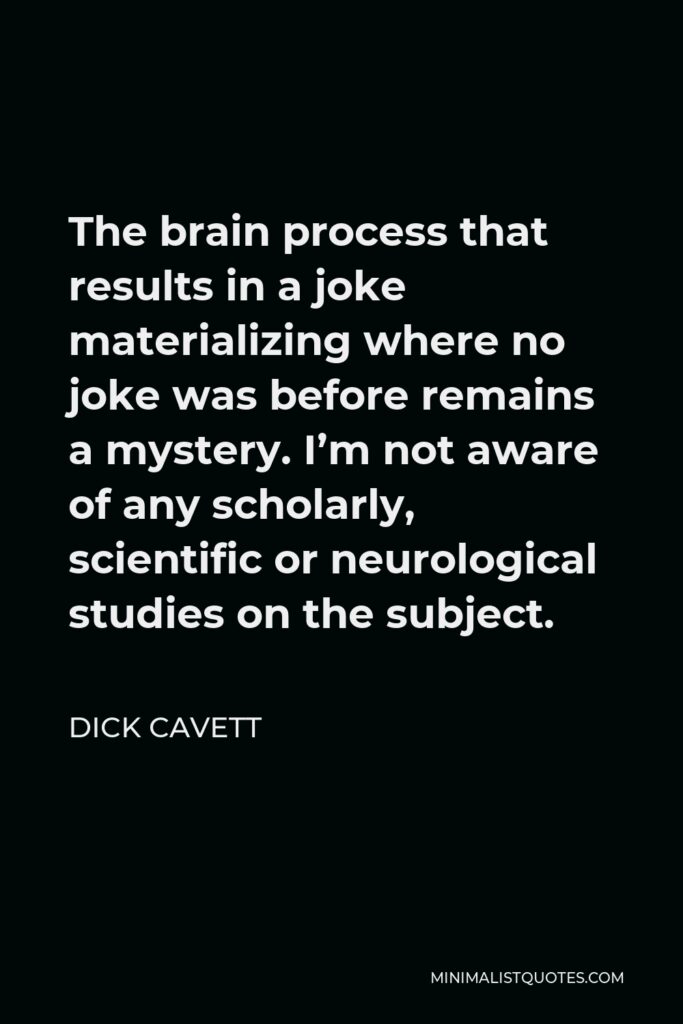

The brain process that results in a joke materializing where no joke was before remains a mystery. I’m not aware of any scholarly, scientific or neurological studies on the subject.
DICK CAVETT -





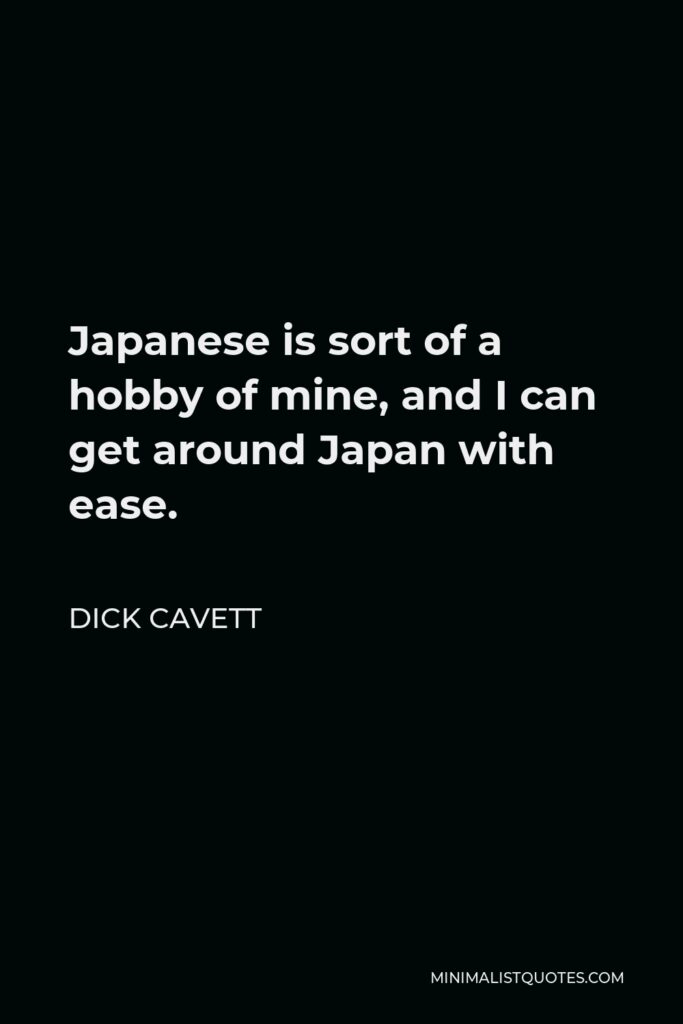

Japanese is sort of a hobby of mine, and I can get around Japan with ease.
DICK CAVETT -







Home schooling as an idea is on a par with home dentistry.
DICK CAVETT -





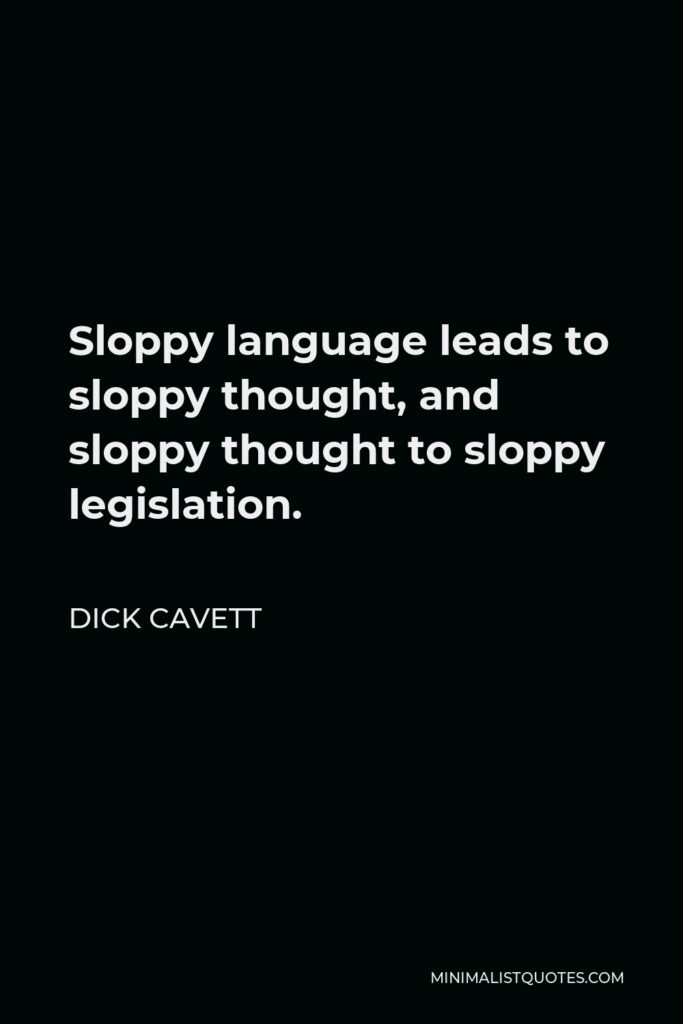

Sloppy language leads to sloppy thought, and sloppy thought to sloppy legislation.
DICK CAVETT -





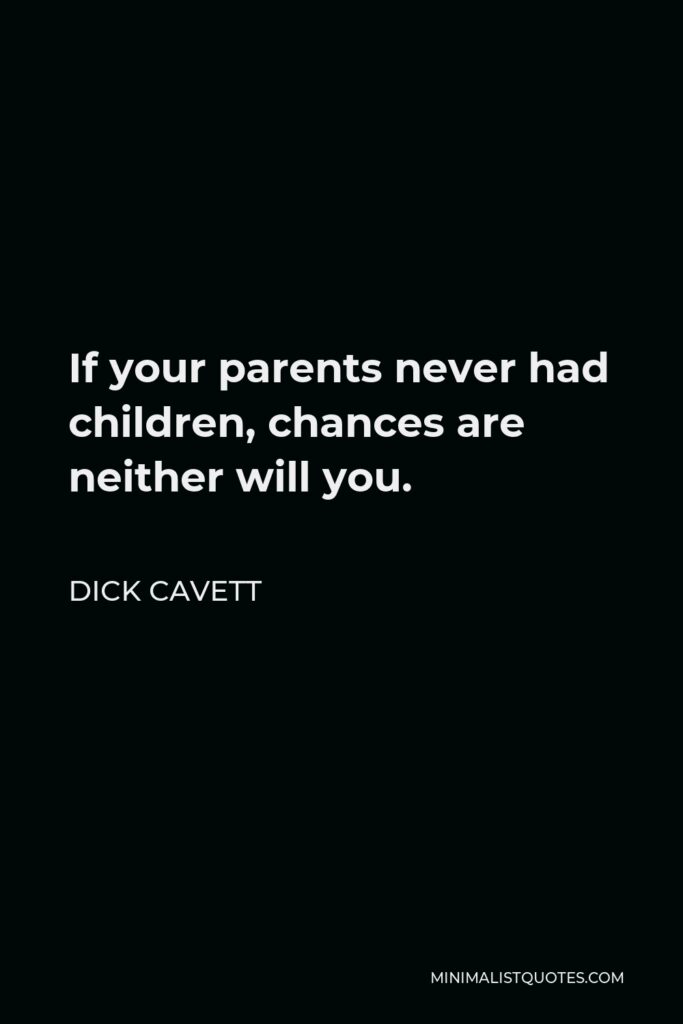

If your parents never had children, chances are neither will you.
DICK CAVETT -





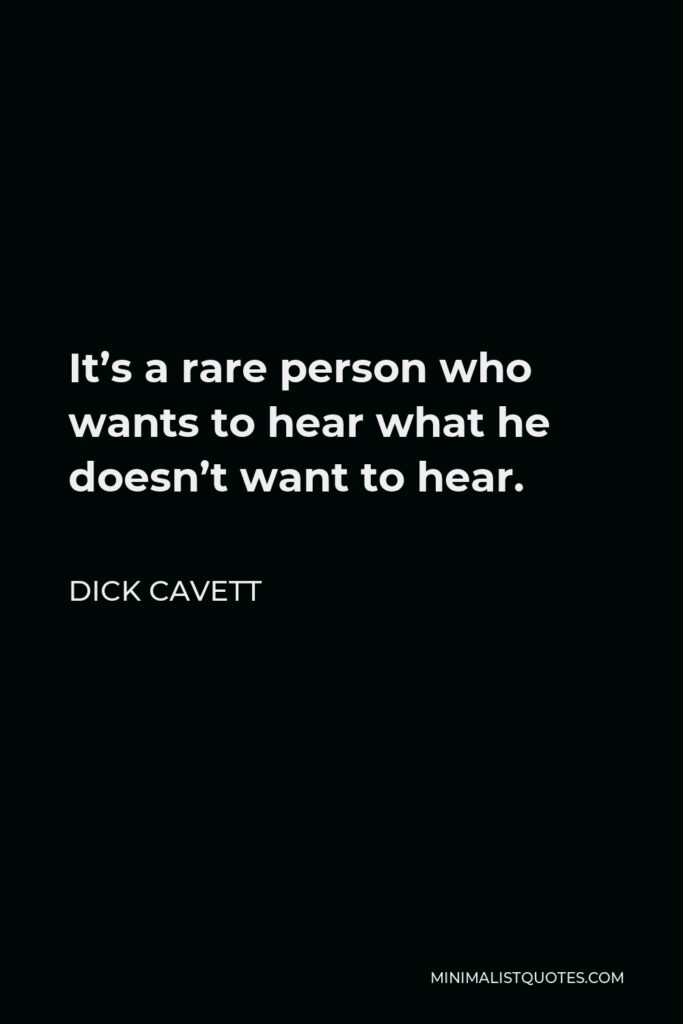

It’s a rare person who wants to hear what he doesn’t want to hear.
DICK CAVETT -





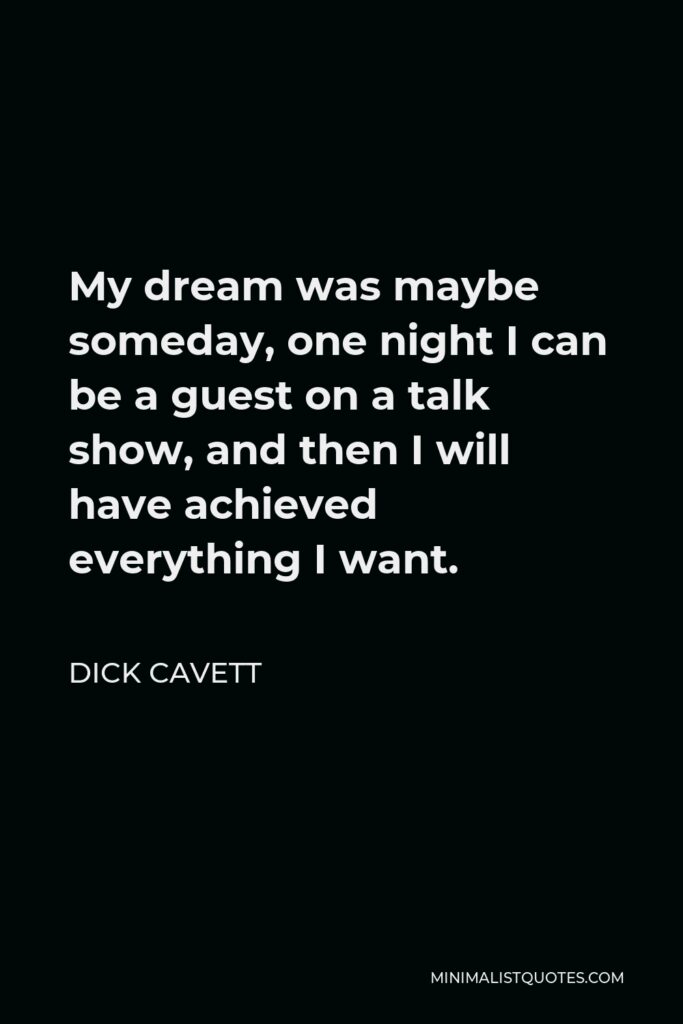

My dream was maybe someday, one night I can be a guest on a talk show, and then I will have achieved everything I want.
DICK CAVETT -





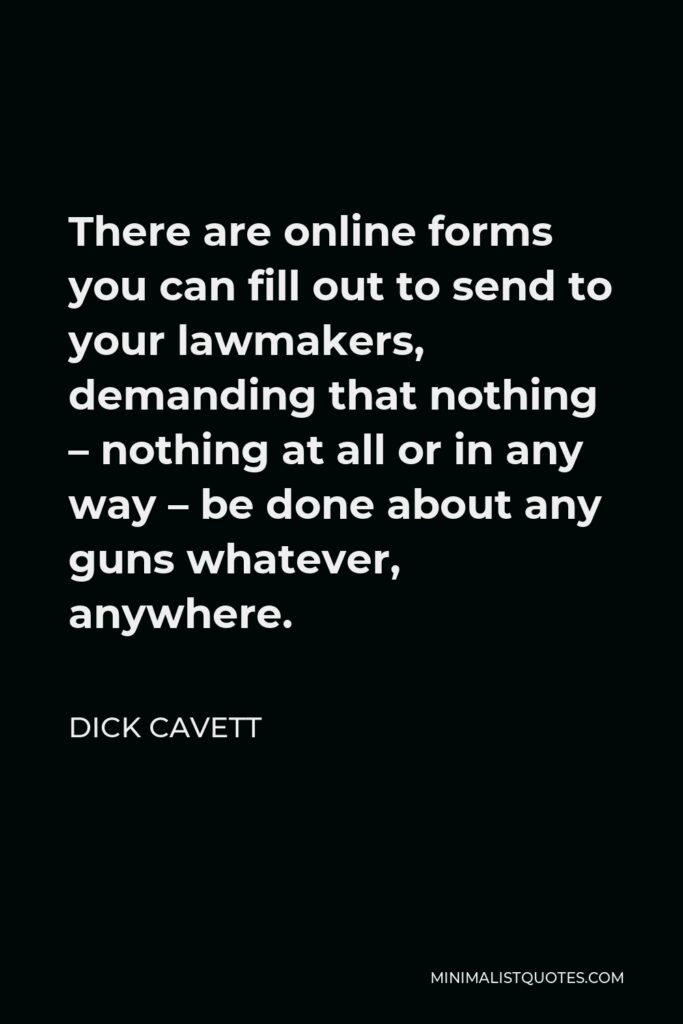

There are online forms you can fill out to send to your lawmakers, demanding that nothing – nothing at all or in any way – be done about any guns whatever, anywhere.
DICK CAVETT -





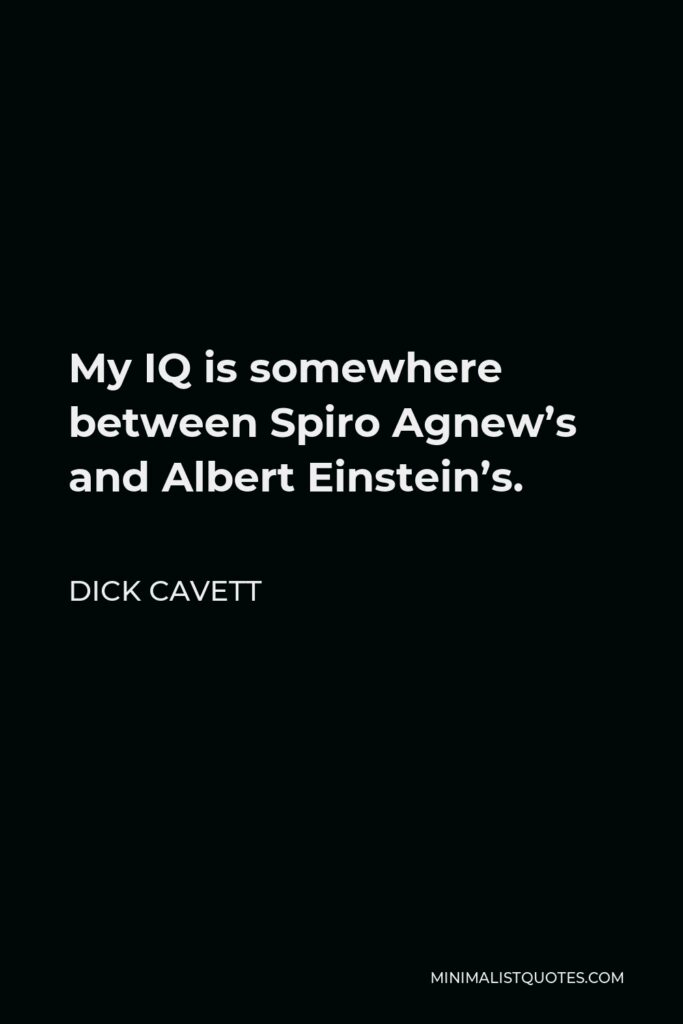

My IQ is somewhere between Spiro Agnew’s and Albert Einstein’s.
DICK CAVETT
